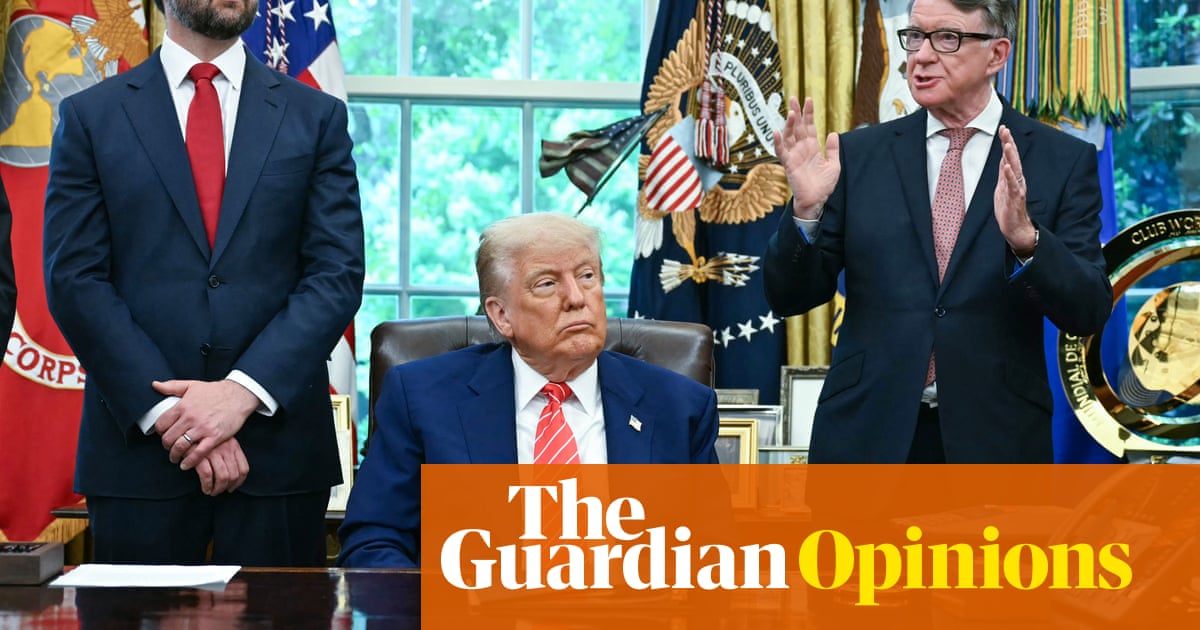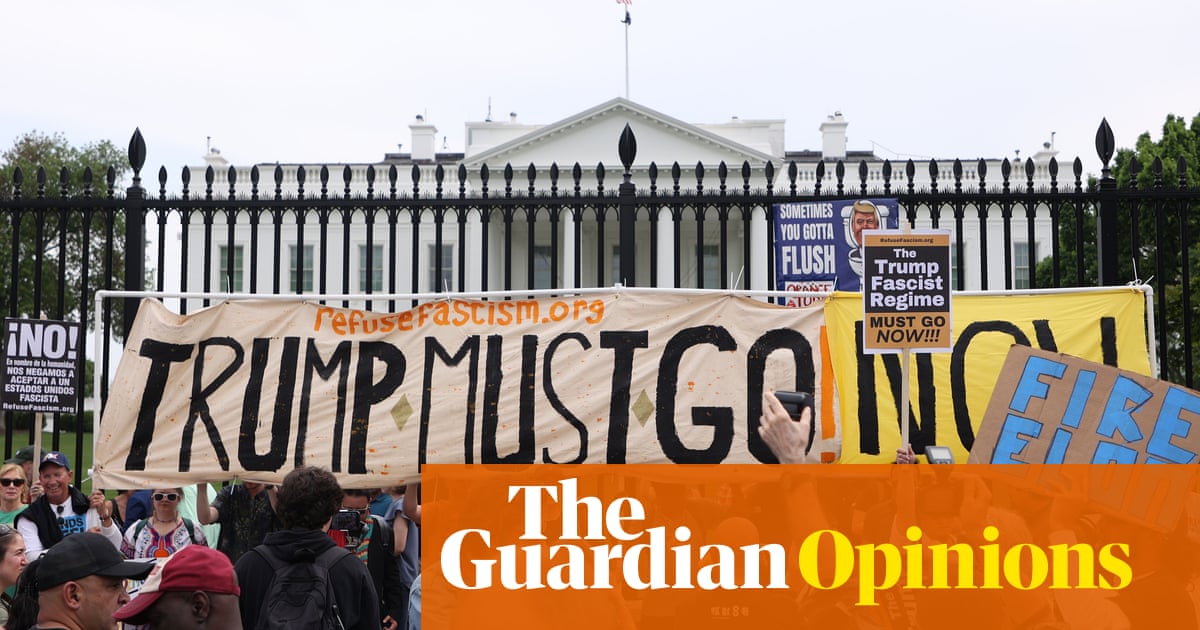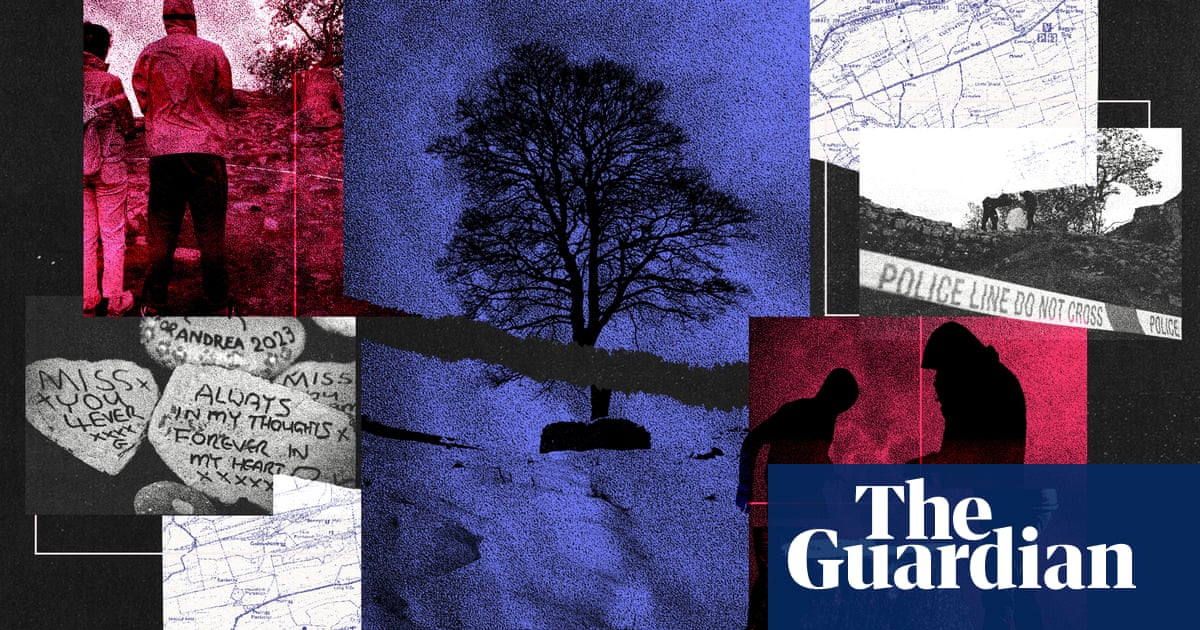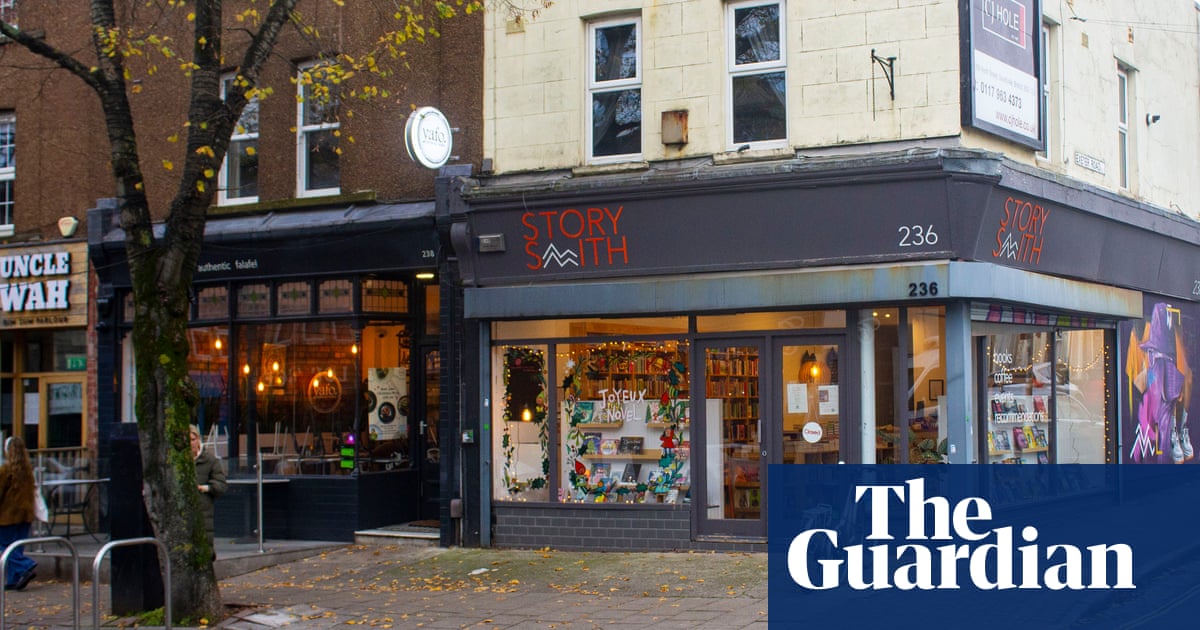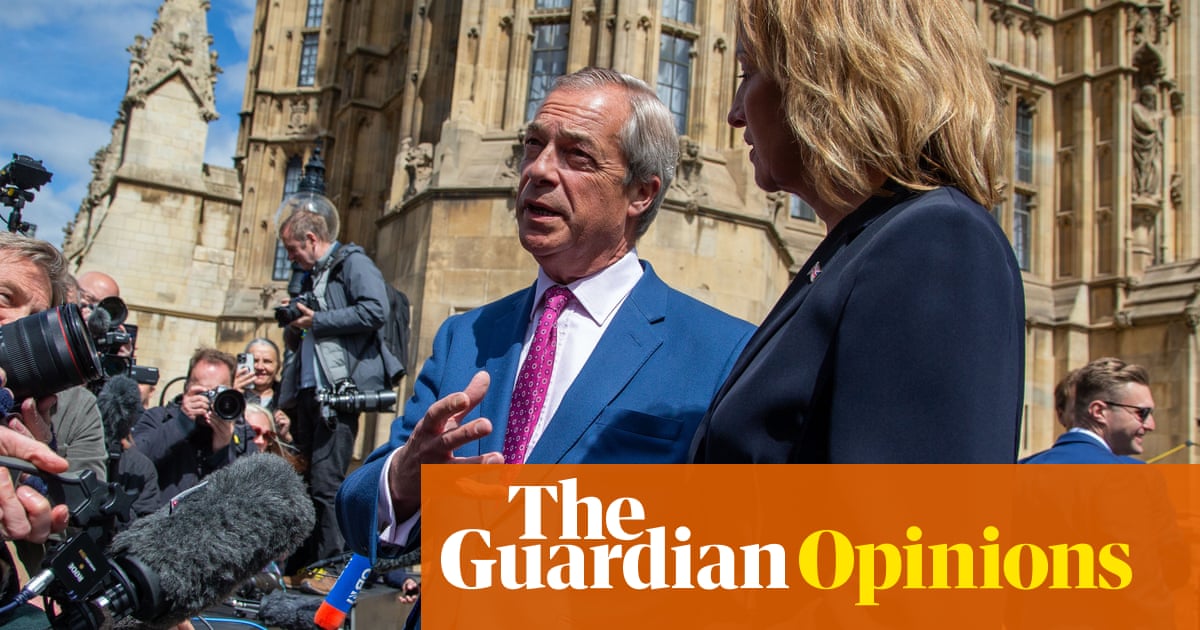Hello and welcome to The Long Wave. This week Donald Trump was inaugurated in Washington, and the moment feels familiar but also very different. I spoke to the Guardian US colleagues Marina Dunbar and Adria R Walker about inauguration day and how Black Americans were bracing for a second Trump term. But first, the weekly roundup.
Weekly roundup
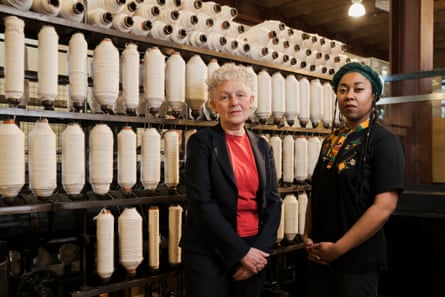
How transatlantic slavery shaped Manchester | An exhibition from the Guardian’s Scott Trust Legacies of Enslavement programme and Manchester’s Science and Industry Museum will explore the role transatlantic enslavement played in shaping the city. The joint project is scheduled to open in early 2027.
Los Angeles’s Black residents start over | The LA county town of Altadena, once home to African American creatives such as Sidney Poitier and Octavia Butler, has been devastated by the Eaton wildfire, which destroyed thousands of buildings this month. Many Black residents say they have lost not only their homes but personal history and heirlooms, too.
Wall Street bank’s slavery links exposed | Historians in Liverpool, England, have examined the roots of the US’s oldest private investment bank, Brown Brothers Harriman, and discovered that the founding family established the business using the profits of cotton produced by enslaved Africans.
T&T extends state of emergency | Trinidad and Tobago’s parliament has unanimously agreed to a three-month extension of national security measures in an attempt to quell escalating violence. The prime minister, Keith Rowley, has claimed a “deliberate policy” by the US Department of Commerce to export arms and ammunition is aggravating gang warfare.
South Africa hunts ‘illegal mining kingpin’ | Last week a rescue operation recovered 78 bodies from an illicit goldmine in South Africa. Now, police have launched a manhunt for a Lesotho national known as Tiger, an alleged kingpin of illegal mining, after he escaped from custody.
In depth: Trump 2.0 – same but different
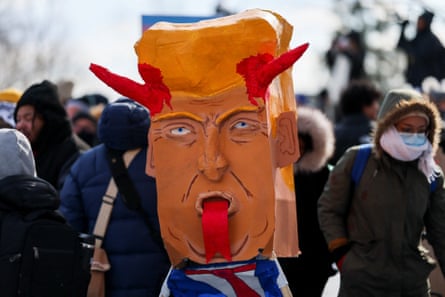
Trump is very much, almost remarkably so, the same man he was eight years ago. His flagship policies are still broadly anti-immigration and openly hostile to movements for racial equality and minority rights. But the moment, and those who surrounded him on inauguration day, are materially different. He has won over more establishment tech titans that one would normally associate with the liberal establishment, and has a human foghorn in the form of Elon Musk projecting his worldview to millions on X.
Trump has also won the popular vote, and seems to be surfing a wider wave of backlash against racial justice measures, such as diversity, equity and inclusion (DEI) policies, that has been building for a long time. So while it might seem as if we have seen it all before, this Trump administration has the potential to be more extreme yet also more mainstream. As the Long Wave’s Jason Okundaye put it, compared with 2016, this time Trump’s presidency feels “less monumental but more consequential”.
Sharpton salutes MLK in a city divided
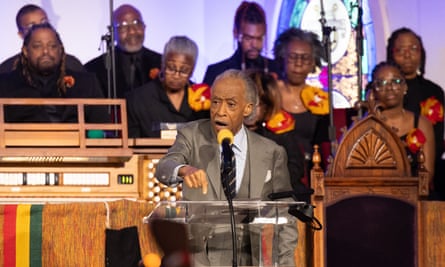
Trump’s inauguration fell on Martin Luther King Day and, as the 47th US president was sworn into office, an event held in a historic Black church in Washington DC – led by the civil rights leader Rev Al Sharpton – turned into something much more significant than the celebration of a national hero. It was, as Marina Dunbar puts it, also a sort of anti-inauguration event. Black participants found a place for solace and determination. “It was a packed house,” she says, “The mood was very energised, lifting people’s spirits.”
The president’s pledge to roll back DEI programmes, which he has already started to implement, served as the focus of the threat from Trump. And Sharpton’s sermon outlined practical measures that could be taken to combat the move, Marina says, either through fighting legislation or boycotting companies that scrap DEI programmes. I get the impression the main purpose of such gatherings in the immediate term is to provide a sense of calm. It’s a scary time. Marina says there is a feeling that the Trump administration’s racism is going to be more brazen, and “they are being a lot more open with it this time around because they know they can get away with it”. And so community leaders at the church were “going out of their way to dispel any fear about the future”.
Fatigue, optimism and ‘Uncle Toms’
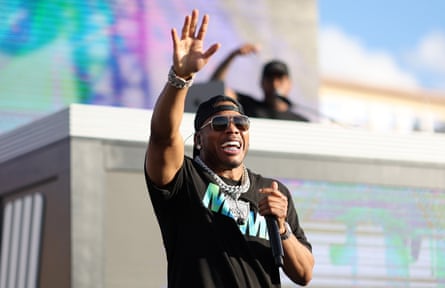
I suggest to Marina that, this time around, the challenge to pushing back against Trump’s policies and rhetoric seems to be in maintaining a sense of solidarity. A confluence of factors threatens to lead to fracture and resignation. There is fatigue with Trump and how, despite all the big resistance efforts during his first term, from the huge Women’s Marches to legal challenges against what became known as the Muslim ban, he still prevailed. There is also a sense of cultural dominance.
after newsletter promotion
In reference to Black public figures, “there are celebrities who would never say something positive about Trump during his last presidency and now they feel comfortable supporting him or performing at his inauguration,” Marina says. “There’s a lot more openness to be part of this Maga movement.” In the run-up to Trump’s inauguration in 2017, Snoop Dogg said on social media: “I’m waiting. I’m gonna roast the fuck outta you” as he called celebrities willing to perform at the event “Uncle Toms”. This time, the rapper performed at Trump’s crypto ball inauguration gala, along with Nelly and Soulja Boy, who defended his decision to appear by saying “they paid me a bag” – a reasoning that could also plausibly be applied to Trump’s billionaire supporters. For some, such as Musk, their payday has already come.
This is “scary for a lot of people,” Marina says, “but it’s always been that way. People were going to say what was going to get them ahead at the time, and Trump was less popular in the mainstream back then. And now, because he has the support of people who control X, Facebook and Instagram, they are turning the tide towards him – and that, in turn, is turning the public’s perception towards him.”
When Marina visited the MLK memorial on inauguration day, she found a sense of acceptance, and even cautious optimism, in the face of this surge of rightwing dominance. There was also gratefulness that Trump’s return to power had not (yet) translated into anything nastier. “This is what the American people want,” she heard several Black people say. “We accept that. We’re just relieved there was a peaceful transfer of power this time.”
‘How are people supposed to trust the Democrats?’
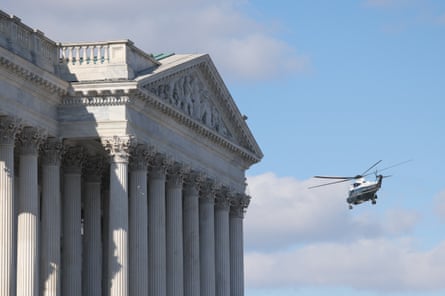
One glaringly obvious absence in the swirl of fear and resolve is the Democratic party. “The one common theme that I heard from everyone I spoke to is that they want to see some kind of change,” Marina says. “People who want that, but are not looking to Trump for that, are very disillusioned with what they see on the Democratic side. We need someone who is more energised, like Al Sharpton, who can speak to a crowd and move a community at once.”
The Democrats “kind of just disappeared after the loss, she says. “They were saying some pretty strong words about Trump, and then overnight were like: ‘Well, he won so we’re going to do our best to work with him.’ How are people supposed to trust you? That’s the general [consensus] right now.”
Amid the vacuum of that leadership and energy, I suggest community-oriented grassroots politics could play an increasingly important role. Figures such as religious leaders, local organisers and reproductive rights activists have always been important, but now, in light of political abdication, their role is central. They are the inheritors of the establishment’s responsibility to comfort and galvanise Black people, and minorities in general, under a second Trump administration. And under this imperative to care for one another, coalitions are building.
“I was surprised when I was at the church rally. There were a lot of people there who were devoutly religious, but there was a lot of support for LGBT rights, saying, ‘Their fight is our fight because we all have the same enemy’,” Marina says. “There does seem to be some sort of unity. It’s nice to see people share these sentiments – it’s a matter of people putting aside their differences and agreeing on what they want to see. The Democratic leadership is not what they want to see – that’s been pretty clear.”
Adria R Walker, the Guardian US race and equity reporter, adds that legacy groups such as Black Lives Matter local chapters are still in the fray, but “newer organisations are also mobilising. A lot of young people were spurred to join organisations and actions in support of Palestine. Those groups are now, if they weren’t already, morphing to also organise around other issues, including this presidency.”
While it may seem that Trump is a singular calamity, Marina mentions a sentiment I have heard previously, particularly from African Americans since the election. She says there has been a lot of focus among those trying to rally the dejected on the fact that: ‘We’ve done this before – look at what our ancestors went through. We have the power to take this back.’ There is a lot of fear but there is a lot of motivation to fight against that fear.”
At the moment, Trump may seem less like a man and more like an era, but within the long history of civil rights, he may yet be only another chapter.

.png) 3 months ago
36
3 months ago
36

